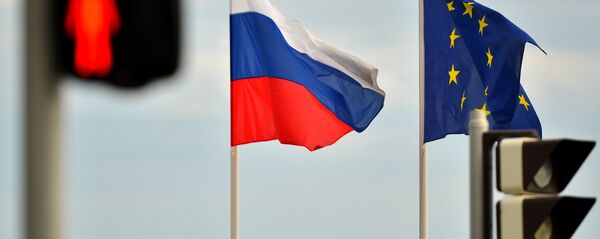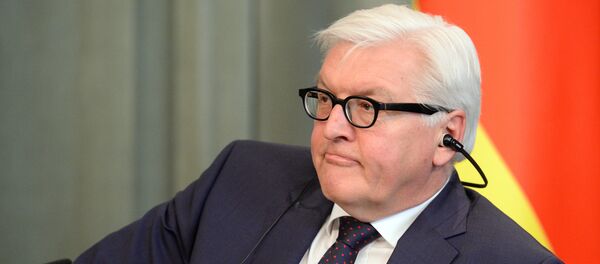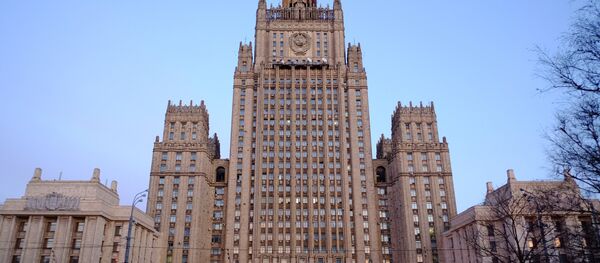"A lack of consequences and sanctions for the most serious war crimes would be a scandal," Roettgen said, adding military measures would be the wrong approach.
Similar claims were voiced on Wednesday by the New York-based Wall Street Journal, which quoted a "person familiar with the German deliberations" as saying that the German government is "considering a push for European sanctions against Russia in response to its behavior in Syria."
Meanwhile, Russia's Izvestiya newspaper has asked a number of politicians and experts in Berlin who said that "nothing has been heard about any new anti-Russian sanctions."
The outlet says it has questioned an official representative of the county's Social Democratic Party (SPD), which is part of a grand coalition with the CDU and the Christian Social Union (CSU), who said he knew nothing of any such intentions of official Berlin.
It got a similar answer from the representatives of the CDU/CSU faction in the Bundestag.
Russian online newspaper Vzglyad also called the rumors about new anti-Russian sanctions strange, given that on Wednesday German Foreign Ministry Spokesman Martin Schaefer told reporters shortly before Western officials met in Berlin to discuss the Syrian conflict, that there were no international proposals to impose sanctions on Russia over its role in Syria.
"I don’t know anyone in Berlin or elsewhere, who would make such a proposal," the German official then said.
Moreover, Gernot Erler, Special Representative of the Federal Government of Germany for the OSCE Chairmanship in 2016 and Coordinator for Intersocietal Cooperation with Russia told the news website ZDFheute.de that there have been considerations voiced about the possible rolling-up of punitive anti-Russian measures.
"The policy of sanctions in the form in which it took place in the Ukrainian conflict is not encouraging to use it as a tool once again,” the politician said.
Meanwhile, Head of the Center for German Studies at the Institute of Europe of the Russian Academy of Sciences Vladislav Belov pointed out to Vzglyad that the article in The Wall Street Journal was based only on one unnamed source who could have said whatever he wanted while the representatives of the German government have officially denied such claims.
The political analyst doubted that the Germany government would follow the US-pushed agenda. Berlin, he said, as well as the EU leadership does not approve Russia's operations in Syria, but it at least "leaves a window for negotiations with Russia and Russia's Foreign Ministry in particular."
"The publication in The Wall Street Journal was a provocative information hoax which is intended not only to start discussions on the introduction of new anti-Russian sanctions over Moscow's role in the Syrian crisis, but also forces German official circles to react to it," Belov said.
"In my view, the chances of Germany introducing new additional sanctions, such as punitive economic measures, are zero," he told the newspaper.
The expert however added that theoretically he wouldn't have completely ruled out such a development.
Meanwhile Alexander Rahr, German political analyst and Research Director of the German-Russian Forum told Russian website National News Service that some mass media sources who took the side of the "party of war" are "mistaking the wish for the reality."
"However if it is really so, then we are possibly entering into a new, incomprehensible stage in the international relations when any political activity of a state, its defense of its geopolitical interests is being punished by sanctions," he said.
The expert therefore said that "such methods of fighting are in fact ruining the world economic system as they are ruining the trust between countries."
"If in response to any emerging conflict we would introduce sanctions, especially without the UN approval of them, all the agreements between the countries and any trust between them which have been established throughout the last 25 years, become worthless," the expert finally said.





